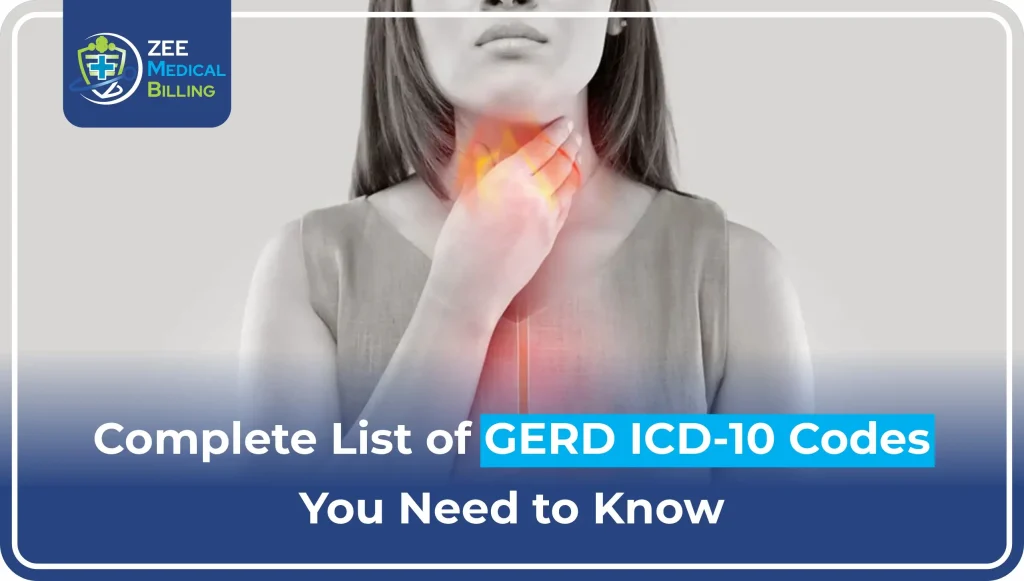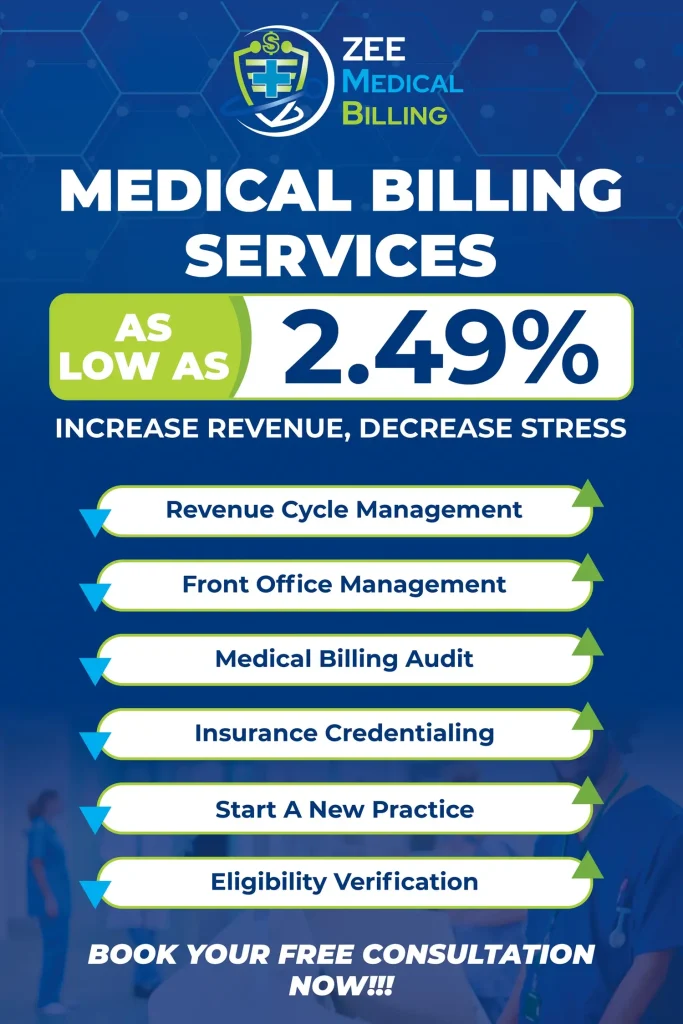Gastroesophageal reflux disease (GERD) is a chronic digestive condition where stomach acid frequently flows back into the esophagus, causing symptoms like heartburn, chest pain, and acid regurgitation. In clinical practice and medical billing, identifying the correct ICD-10 code for GERD is essential for accurate documentation, treatment planning, and insurance claims.
This complete guide will help you understand the most relevant GERD ICD-10 codes when to use them, and how they apply in real-world medical settings.
What is GERD?
GERD, or gastroesophageal reflux disease, is a long-term condition that results from the backflow of stomach acids into the esophagus. While occasional acid reflux is normal, GERD involves persistent symptoms that often require medical intervention.
Read More: Skin Tag ICD-10 Codes and CPT Guide for Easy Billing
Common Symptoms of GERD:
- Heartburn
- Acid regurgitation
- Chest pain
- Difficulty swallowing
- Hoarseness or chronic cough
GERD can be categorized into:
- GERD without esophagitis (no visible inflammation in the oesophagus)
- GERD with esophagitis (visible inflammation and damage in the oesophagus)
Why ICD-10 Codes for GERD Matter?
Accurate coding ensures proper medical documentation, allows for streamlined insurance billing, and contributes to health data reporting. ICD-10 codes help healthcare providers:
- Track patient outcomes
- Determine appropriate treatments
- Submit claims efficiently
- Monitor national disease trends
Primary ICD-10 Codes for GERD
K21 – Gastroesophageal reflux disease
This is the primary category under which all GERD-related codes are found in ICD-10-CM. The codes below fall under this category.
K21.0 – Gastro-esophageal reflux disease with esophagitis
- Use this code when GERD is accompanied by oesophageal inflammation.
- Often associated with more severe cases or visible damage on endoscopy.
Keywords matched: Gerd with esophagitis ICD 10, ICD 10 code for Gerd with esophagitis, ICD 10 for Gerd with esophagitis, Gerd esophagitis ICD 10
K21.9 – Gastro-esophageal reflux disease without esophagitis
- Use this code when GERD symptoms are present but esophagitis is not observed.
- Common in mild or early-stage GERD.
Keywords matched: Gerd without esophagitis, ICD 10, ICD 10 code for gerd without esophagitis, ICD 10 gerd without esophagitis.
Additional ICD-10 Codes Related to GERD
While K21.0 and K21.9 are the most common, other diagnostic and procedural codes may appear in relation to GERD:
R12 – Heartburn
- Used when heartburn is present but GERD is not officially diagnosed.
- Not a substitute for K21 codes.
R53.1 – Weakness
- Sometimes used when GERD causes fatigue due to disturbed sleep.
Z87.19 – Personal history of other diseases of the digestive system
- This is for patients with a resolved history of GERD, especially in follow-up consultations.
Selecting the Right GERD Diagnosis Code
Choosing the correct code requires accurate clinical documentation. Here’s how to decide:
Step 1: Confirm Diagnosis
- Review symptoms, endoscopy, and pH monitoring results.
Step 2: Identify Severity
- Use K21.0 for inflammation
- Use K21.9 when no esophagitis is noted
Step 3: Rule Out Overlapping Conditions
- GERD often coexists with ulcers, hiatal hernia, or functional dyspepsia.
- Use additional codes if those conditions are present.
Step 4: Document History Clearly
- Use Z87.19 when the patient no longer has active GERD but has a past history.
Benefits of Accurate GERD ICD-10 Coding
1. Improves Patient Care
- Enables personalized treatment plans
- Tracks severity and response to therapy over time
2. Streamlines Billing Process
- Reduces claim rejections
- Ensures faster reimbursement cycles
3. Supports Research and Policy
- Helps healthcare systems track chronic digestive diseases
- Aids in funding public health initiatives
4. Reduces Compliance Risks
- Accurate coding protects providers from audits and penalties.
Read More: How AI Is Transforming Medical Billing and Coding?
Real-Life Coding Examples
Example 1:
- A patient presents with classic GERD symptoms.
- Endoscopy shows esophageal irritation.
- ICD-10 Code: K21.0
Example 2:
- A patient has acid reflux symptoms without visible esophagitis.
- No endoscopy has been performed yet.
- ICD-10 Code: K21.9
Example 3:
- A previous GERD patient returns for a general check-up.
- GERD is no longer active.
- ICD-10 Code: Z87.19 (History)
FAQs
1. What is the ICD-10 code for GERD?
The general ICD-10 code for GERD is K21, with subcategories for cases with or without esophagitis.
2. Is GERD with esophagitis coded differently?
Yes. Use K21.0 if inflammation is present.
3. Which code applies if esophagitis is not seen?
Use K21.9 for GERD without esophagitis.
4. Can you code GERD based on symptoms alone?
Yes, if symptoms strongly indicate GERD, but confirmation via endoscopy is ideal.
5. Is GERD considered a chronic condition?
Yes. Chronic GERD should be monitored and documented consistently.
Final Thoughts
Understanding and applying the correct ICD-10 codes for GERD is critical for accurate documentation, effective treatment, and streamlined insurance billing. With primary codes like K21.0 and K21.9, healthcare professionals can categorize GERD precisely based on clinical findings.
Always refer to official coding guidelines and ensure documentation supports the diagnosis. For more healthcare billing insights and resources, visit https://zeemedicalbilling.com.
Need Expert Medical Billing Services?
Zee Medical Billing provides professional billing solutions tailored to healthcare providers across the United States. In addition to offering top-tier support from our main office, we proudly serve clients in Illinois, Indiana, California, Kentucky, New York, Washington, Georgia, Alabama, South Carolina, Texas, Pennsylvania, Ohio, New Hampshire, Nevada, Massachusetts, Hawaii, Arizona, and Colorado! Whether you’re looking to streamline your revenue cycle or improve claims accuracy, you can reach out to us to learn more about how we can support your practice.









